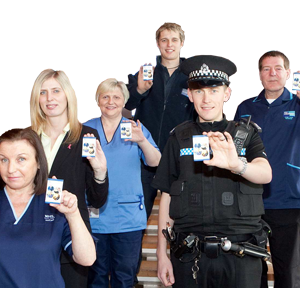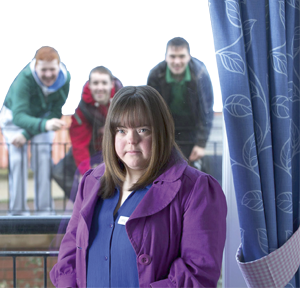Financial harm
Some adults can be more susceptible to financial harm. Financial harm covers theft, fraud, pressure to hand over or sign over property or money, misuse of property or welfare benefits, stopping someone getting their money or possessions, being scammed by rogue traders, online scams, by email or by post. The Adult Support and Protection legislation is designed to protect adults at risk who are unable to protect themselves, their property, rights or other interests.
This is a huge area of concern and the indications are that it is very much a hidden problem and under researched. However, one report has been published that is worth reading if you are involved in working with adults at risk:
Financial exploitation by relatives, friends and carers
People can be financially harmed by anyone. For example, a person may be in receipt of full benefit entitlement and you may be aware a family member manages this money, however their bills are not being paid, they have little food in their house and have a limited amount of money at their disposal. Alternatively you may be aware that a family member/carer has purchased goods which are of no use to the adult at risk.
Adults being exploited by people in the community
Unfortunately, there have been many cases of financial harm where people take advantage of a perceived vulnerable person by taking over their house and abusing their hospitality.
What starts out as a ‘party night’ or 'coming in for a wee drink’ can result in a group of people overstaying their welcome. For example, they may take up residence, help themselves to food and drink, use intimidating behaviour and threaten the adult to hand over their money.
Often, these cases come to light when neighbours report disturbances. In these circumstances, Police, Social Work and the Anti-Social Behaviour teams can work together using various legislation to protect the adults welfare, property, rights and other interests. This could include seeking an Anti-Social Behaviour Order or a Banning Order.
For more information see South Lanarkshire Council’s page on Anti-Social Behaviour.
People misusing formal powers
Sometimes, where the person has the capacity to do so, they could grant someone they trust to look after their finances and welfare. This is called a Power of Attorney.
If they lack capacity, someone, like a family member, or close friend may apply for Welfare and Financial Guardianship which would be granted through the courts. Sometimes the Council will do this if the person has no family who are able to apply for Guardianship.
Sadly, there have been a number of cases where someone has been granted Power of Attorney or awarded Guardianship but has abused that position of trust and went on to mismanage the persons funds. Everyone has a duty to bring any concerns to the attention of The Office of the Public Guardian. They have an Investigations Team who will investigate concerns and take appropriate action if someone is being exploited.
Information on Power of Attorney and Guardianship is available on the Office of the Public Guardian website.
For more information see the Public Guardian website.
Bogus callers, rogue traders and scammers
The Police and trading standards have found that organised gangs of bogus callers, rogue traders and scammers target potentially vulnerable people and their details are ‘sold on’ to others. This means that the person can become a victim several times over.
Vulnerable people can fall victim to high pressure sales techniques and end up buying goods and services that they don’t actually want or need. People can often feel embarrassed that they have been duped by bogus callers, rogue tradesmen or scammers and may keep quiet about it. These fraudsters create financial hardship for those involved, not to mention the emotional and psychological impact such loss of confidence and self esteem.
If you are aware of anyone who may have been targeted by bogus callers, rogue traders or scammers, you should consider the following:
- the person may be upset or short of money
- what company is carrying out the work
- the cost involved
- what you can find out about the company
- ask to see identification
- note the vehicle registration number
Other signs to look out for are a large amount of unsolicited mail or phone calls.
If you are concerned about bogus callers, rogue traders or scammers, phone trading standards/consumer advice on 0303 123 1015.
More information is available on the Consumer advice pages of the South Lanarkshire Council website.
The Council is working on an approved traders scheme called Buy With Confidence which will provide a list of approved companies and individuals across a range of trades in South Lanarkshire.



